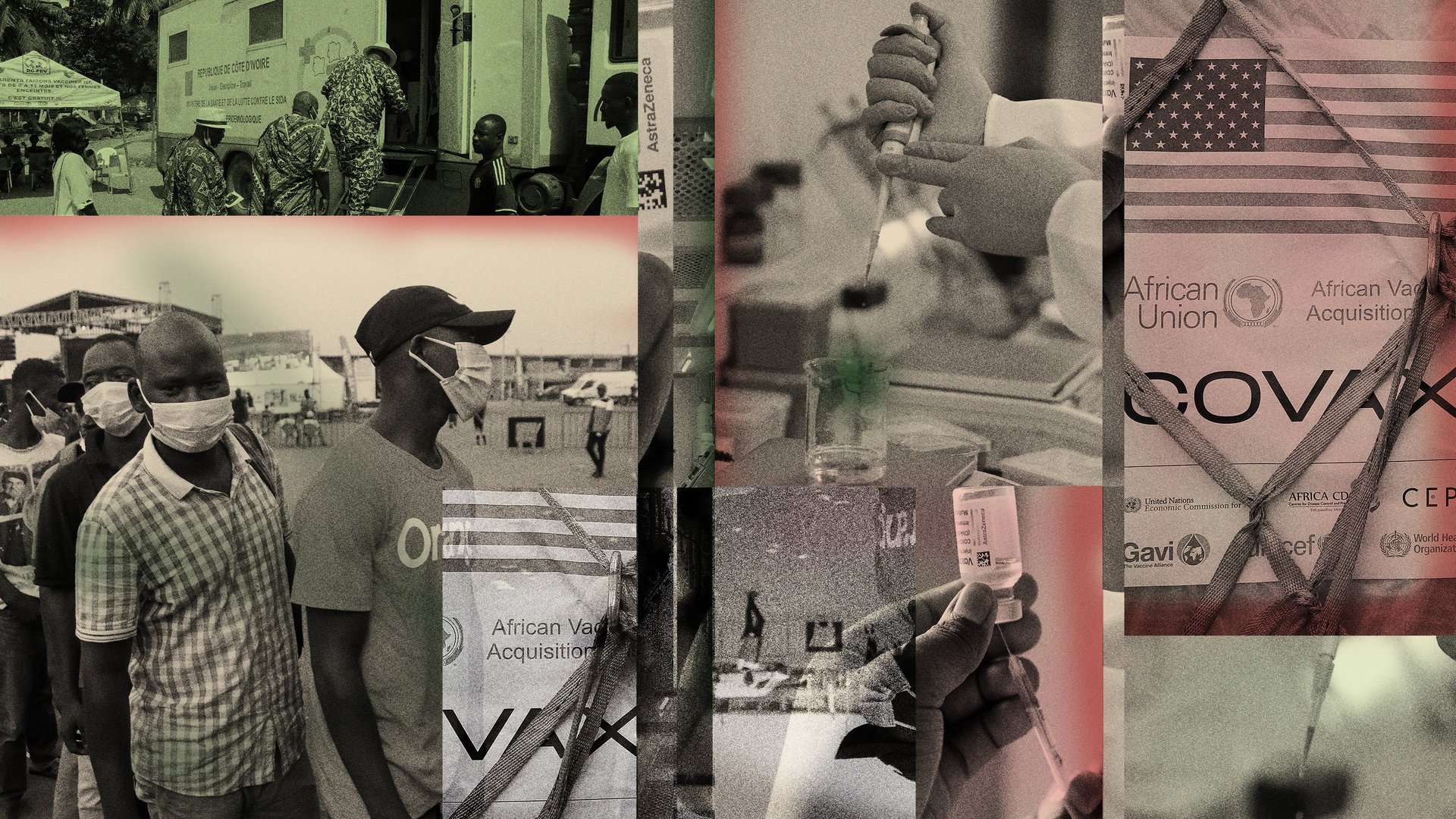The pandemic isn’t over in Africa
As countries across the world are easing or removing their covid-19 restrictions to open their economies and return to a normal life, countries in Africa are increasingly following suit, despite low vaccination rates.


As countries across the world are easing or removing their covid-19 restrictions to open their economies and return to a normal life, countries in Africa are increasingly following suit, despite low vaccination rates.
A few weeks back, the WHO raised concern over the increasing number of African countries rolling back covid-19 measures. “It is a matter of concern that nearly half of all countries in Africa have stopped tracing the contacts of cases,” said Dr Matshidiso Moeti, WHO Regional Director for Africa.
Only 22 countries now have a ban on mass gatherings dropping from 41, a year ago, while 7 out of 21 countries in a survey no longer require people exposed to the virus to be quarantined, according to the WHO.
That same week, South Africa and Nigeria eased their covid-19 rules on travelers’ requiring a PCR test. South Africa also eased its rules on masks and gatherings. Kenya eased its rules on masks, public vehicles capacity, and quarantine. The unfortunate thing is that even long before rules on travel, masking, and social distancing had been eased, in many parts of Africa, people barely complied with existing rules or rules were barely enforced—many had long moved on.
Which countries have the lowest and highest covid vaccination rates?
There are concerns about African countries lowering their guard while region has the lowest proportion of vaccinated people.
Since the fourth wave in December last year, there has been a drop in the number of new cases reported in Africa. In South Africa, there has been a 6% decrease in the last seven days (compared to the previous seven days) and 1,346 cases reported in the last 7 days. In Nigeria, a 20% decrease and 20 cases, and 12% and 11 cases in Kenya, according to WHO covid-19 dashboard as of Apr. 11.
Also, Africa has reported the lowest number of covid-19 cases and deaths of all regions. Apart from six African countries including Tunisia, South Africa, and Seychelles that have reported the highest death rates: 241, 169, and 166 confirmed covid-19 deaths per 100,000 people respectively as of Apr. 11, African countries have reported less than 100 compared to 295 in the US and 250 in the UK, according to WHO. These low numbers have contributed to the belief in these countries that the virus is not a big threat.
“The pandemic isn’t over yet and the preventive measures should be eased cautiously with health authorities weighing the risks against the anticipated benefits. Lifting the public health measures does not mean lifting the foot off the pedal of pandemic vigilance,” warned Dr Moeti.
Africa has low covid-19 testing rates
The low number of confirmed cases and deaths in the continent is partly due to the low testing rate. While high-income countries have done more than 1,000 tests per 1,000 people as of Apr. 8, the majority of African countries have done less than 200.
Nigeria, the continent’s most populous country has done only about 23 tests per 1,000 people since the beginning of the pandemic and has confirmed about 1.5 covid-19 deaths per 100,000 people, compared to Tunisia, South Africa, and Namibia that have done 380 – 400 tests per 1,000 people and are among the top four African countries with the most confirmed deaths per 100,000 people.
“We should not throw off every measure as many of them have done in other regions. We should look at our situation and plan accordingly”, said Oyewale Tomori, a professor of virology and member of WHO technical advisory group on covid-19 vaccine composition. “If we look at the rate of vaccinations, most people in other regions are vaccinated, but most people here are not and may still be vulnerable to the disease.”
Despite the high vaccination rate in Europe, last month, the WHO regional director for the Europe region, Dr Hans Kluge, reportedly blamed the recent increase in the daily reports of new cases in European countries on pandemic restrictions being relaxed too soon in the countries.
Oyewale Tomori advised that African authorities should make decisions based on the epidemiology of the disease in their countries and not what others are doing. “As long as that level of our vaccination is low. As long as the disease is still around, I would say there should be mandatory testing for anybody coming into the country, whether the person is fully vaccinated or not. Masks should remain mandatory in any place where there is a possibility of transmission,” he said.
The increase in new cases in Europe has been linked to the recent spread of the more contagious Omicron subvariant known as BA.2. The subvariant now represents more than 21% of sequenced cases worldwide and 86% of sequenced cases in South Africa.